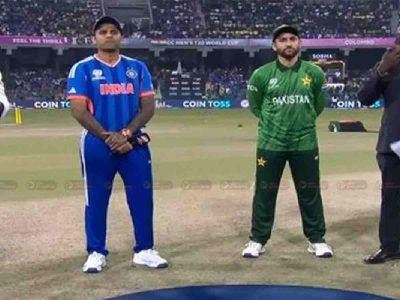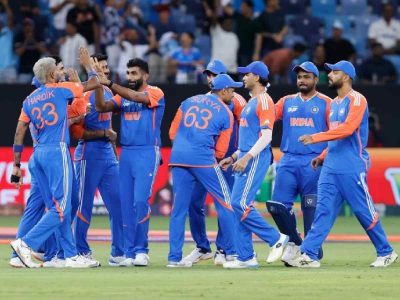Fantasy sports saw a monumental rise in the Indian market last year, but with the ongoing pandemic, the business set to hit a low in 2021
Ranit Das, an avid English Premier League fan, not only looks forward to the start of the season every year but also remains eager to build his own team of footballing stars and compete against his friends from all around the world, courtesy the Fantasy Premier League (FPL).
“It gives me a sense that I am also officially participating in the thick of the action even though I am not a part of it physically”, he says.
The FPL, which is the official fantasy sports wing of the EPL, attracts more than 10 lakh Indians to officially participate in the tournament and play against each other for points.
Following suit, Indian leagues have also started pitching in with their own fantasy leagues. The IPL has one on their official website every tournament. Similarly, tournaments like ISL, and even the Pro Kabaddi League have their own official fantasy leagues where users can participate.
In fact, such has been the popularity of fantasy sports in the past couple of years that Dream11, an app dedicated only to fantasy cricket, became an official sponsor of the IPL last season. In fact Dream11, with more than 1 lakh users, is now one of the more popular apps in the Indian market, so much so that they have roped in former India captain and BCCI president Sourav Ganguly as their brand ambassador.
The Federation of Indian Fantasy Sports (FIFS), India’s first and only self-regulatory industry body for Fantasy Sports (FS), on July 10 unveiled the findings of a report titled ‘Business of Fantasy Sports’ in collaboration with KPMG, at its flagship event FIFS Game Plan 2020. According to the FIFS-KPMG report, fantasy sports operators’ gross revenues stood at more than Rs 2,400 crore for the FY20 as compared to Rs 920 crore in FY19 an increase of almost three times over a period of 12 months.
Indian fantasy sports platforms have shown a rapid increase in their user-base YoY, growing from 20 lakh in 2016 to 9 crore in 2019. Similarly, the number of fantasy sports platforms in India has increased from less than 10 operators in 2016 to more than 140 operators by the end of 2019.
The fantasy sports market recorded a CEA (Contest Entry Amount) of over Rs 6,000 crore in FY19 and more than doubled to Rs 16,500 crore in FY20, at a growth rate of 167 per cent. The growth in FY20 is despite COVID-19’s impact on loss of CEA and revenues for the last 15 days of March 2020.

Every rupee of revenue earned by the Indian fantasy sports platforms translates into revenue for its supporting industries; thereby resulting in indirect topline growth for these service providers. Indian platforms are also contributing to the overall growth of the Indian economy by paying GST, TDS on winnings, through sponsorships, in attracting FDI, in executing advertising campaigns, building IT infrastructure and incremental earnings for fantasy sports winners, among others.
Furthermore, close to 50% of transactions on such platforms in 2019 were initiated from Tier 2 and Tier 3 cities in India, thereby promoting digital payments literacy and adoption. The report further deep dives into the symbiotic relationship between real-life sports and fantasy sports. A survey with 750+ respondents found that for 55% of the respondents, the engagement with fantasy sports increases the consumption of real-life sports.
Further, over 65% of the respondents indicated that there is a direct increase in the time spent in analysing, watching and reading about sports once they start participating in online fantasy sports.
Besides increasing sports consumption among sports fans, fantasy sports also supports the sports ecosystem by sponsoring live-sporting events, across cricket, football, basketball, volleyball etc., by partnering with sporting personalities and giving back to sports via philanthropic initiatives. Due to the rapid growth of fantasy sports, a new segment of the fantasy research ecosystem is also fast emerging across different digital platforms.
Talking about the growth of the fantasy sports industry in India in his speech at GamePlan 2020, Amitabh Kant, CEO, NITI Aayog, says, “I have very keenly followed the growth of Indian fantasy sports industry as a supporter of technology and good governance. I am a long term believer that India must become a global champion of the fantasy sports industry. Sports across all facets, including fantasy sports, could well be a game-changer for employment and career opportunities. Given our Government’s initiatives like ‘Digital India’ and ‘Startup India’, I believe that we can harness the power of fantasy sports and create a robust sports ecosystem to boost its growth in the next few years.
Commenting on the report findings, John Loffhagen, Chairman, FIFS, said “As real-life sports is making a promising return, Indian sports fans are in for a non-stop sporting action for 8-9 months. As most of these matches will be held without an in-stadia audience, we are sure that fantasy sports being a highly immersive fan engagement platform will experience a strong surge in demand by the Indian sports fans.”
Girish Menon, Head of Media and Entertainment and Partner, KPMG India, further added, “Online fantasy sports in India has seen rapid growth, reaching a revenue size of Rs 2,470 crore in FY20. This growth has also contributed immensely to the overall ecosystem around fantasy sports including online payment platforms, tech vendors, data analytics, etc. and has had a positive impact on the consumption and growth of the overall sports landscape in India.
However, not everything looks bright for the immediate future of fantasy sports.
With no Indian Premier League (IPL) or other high-profile sporting events taking place this year due to the COVID-19 pandemic, fantasy sports is staring at losses after a three-fold revenue growth in FY20.
IPL constitutes around 35-40% of the industry revenues. With uncertainty looming around the league, the fantasy sports industry is feeling the heat.

Moreover, cancellation and postponement of most sports leagues and tournaments around the world has had a direct impact on the revenue streams of Fantasy Sports platforms.
The postponement of major global football leagues, cricket tournaments and the Euro 2020 has resulted in a depressed Q1 FY21 for fantasy sports players, a report by Federation of Indian Fantasy Sports (FIFS)- KPMG says.
However, despite the slow business, fantasy sports players are optimistic that things will look up in the coming months, with indications that IPL might take place in Q3 FY21.
According to the report, IPL could help arrest some of the revenue losses.
The industry, according to the report, might end up with a 20-22% decline in terms of GMV (gross merchandise value) in FY21 as compared to FY20.
Amitabh Kant says that “post the (COVID-19) pandemic, I am confident that the industry will not just rebound but will lead the way for sustainable technology-enabled growth secured by good governance”.
While Covid-19 may result in a temporary blip in the upward trajectory of the fantasy sports segment, the medium to long term growth prospects of the segment remain robust, with the gradual return of international sport. Further, in a post-Covid world, with social distancing measures in place, fantasy sports is likely to play an increasingly important role in connecting fans to their favourite sports and increasing fan engagement.”, comments an optimistic Girish Menon
What is Fantasy Sport?
A fantasy sport is a game that requires users to draft fantasy teams based on certain criteria from a list of real sports players scheduled to play a live sport on a given day. Users may typically pay an entry fee to enter a contest. After the deduction of a service/administrative fee by the platform operator, the entry fees are pooled for distribution among the users on the platform (“Entry Pool”) depending on their performance.
Users draft teams based on their knowledge of the game (gathered through systematic research), attention, experience and adroitness regarding the underlying sport. Based on the performance of the real sport players selected by the user to draft his/her team, the user collects points. Points are awarded to users according to the scoring sheet and performance of their selected players in the real match. Users are later ranked based on these points and accordingly receive distributions from the Entry Pool
Intense engagement
Key findings from the KPMG survey conducted among 750 respondents are as follows:
- For 55% of the respondents, their engagement with sports increased once they started engaging with fantasy sports
- 32% of all fantasy sports users, engaged with more than one sport on the platform
- Over 65% of these respondents indicated that there is a direct increase in the time spent in analysing, watching and reading about the sport once they start participating on fantasy sports online
- Fantasy Sports users who engaged with fantasy sports platforms more than 4 times a week spent an average ~215 minutes/week watching sports in comparison to users who engaged less than 4 times a week and spent ~160-180 minutes/week watching sports
- 16% of the fantasy sports users categorically mentioned that the key motive of watching the sports leagues is to track the performance of their fantasy sports teams
- 77% of fantasy sports users are engaged in cricket contests followed by Football at 47% & Kabaddi at 9%
- 15-20% of the active users on fantasy sports platforms are paid-users, which is significant given the relatively younger vintage of the industry as compared to other digital businesses
(Cover: MS Dhoni is the brand ambassador of Dream 11 // Photo: Facebook)





